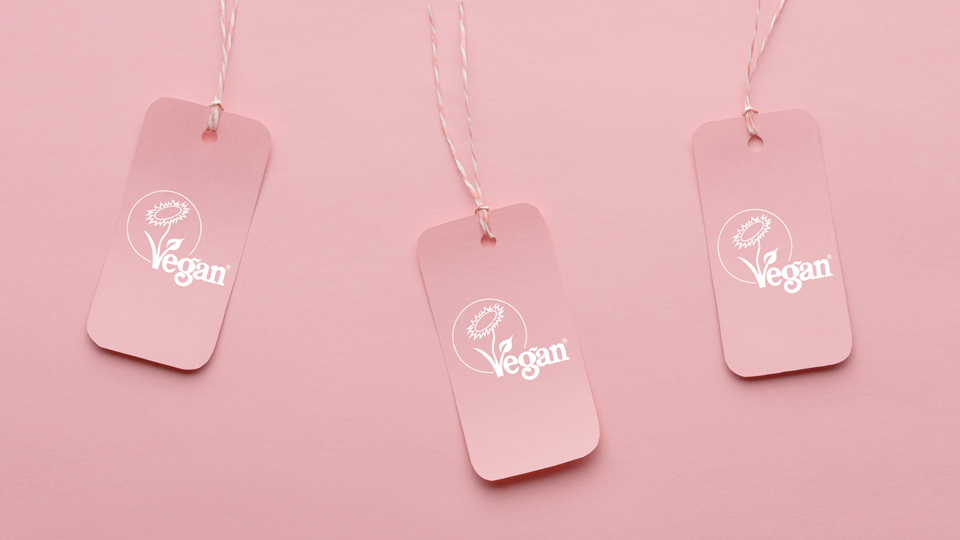Whether you're a full-blown vegan, are challenging yourself with veganuary or have read our previous blog on ethical beauty and decided you'd like to shop vegan beauty products now, our guide to vegan products is for you. Here we delve deeper into what makes a product completely vegan, and how to find vegan beauty products and vegan makeup.
What Does Vegan-Friendly Beauty Mean?
Put simply, vegan-friendly beauty products contain no animal or animal-derived ingredients whatsoever. When it comes to vegan makeup and vegan beauty brands though, there are a few things to note:
- If a product is labelled or advertised as vegan, it doesn’t necessarily mean that it contains natural ingredients. Plenty of synthetic ingredients manufactured in labs are also vegan. If you’re looking for a natural vegan regime then it’s also important to check the individual ingredients and other claims that the product is making.
- On the flip side, natural and organic doesn’t always guarantee you’ll find vegan beauty products easily — as organic beauty products can still contain animal derivatives like beeswax.
- Lastly — but most importantly — just because a product is vegan, it doesn’t guarantee that it is also cruelty-free. You’d think that these elements go hand in hand, but some companies want to market themselves as vegan whilst still selling in countries that require animal testing. So make sure you research the best vegan beauty brands before you buy. Look for brands that sell vegan products and are also committed to the ethical treatment of animals.
Vegan Beauty Products vs Cruelty-Free Products:
Cruelty-Free Makeup and Beauty Products Mean:
- Products/ingredients are not tested on animals in the EU
- Product is not sold in China
- Product may not be natural or organic
- Product may contain animal-derived ingredients
Vegan Makeup and Beauty Products Mean:
- Products/ingredients are not tested on animals in the EU
- Product is not sold in China
- Product may not be natural or organic
- Product contains no animal-derived ingredients
If the product has either vegan or cruelty-free certification, it is internationally cruelty-free.
How to Check If Your Product Really Is a Vegan Beauty Product
- Check for certification. The Vegan Society and vegan.org are two independent bodies that check and verify a beauty product's ingredients. If they can confirm the product is completely vegan, they give it their seal of approval. Both the Vegan Society and vegan.org also certify cruelty-free products, so these are good symbols to watch out for to ensure you're buying both the best vegan and cruelty-free products. Where a product hasn't been certified as vegan, there may be some cruelty-free certifications that you can spot. This way, you can instantly know that a product is cruelty-free before delving deeper into the ingredients. For more information on certified vegan beauty products, check out our certified vegan blog

- Research a brand’s stance on animal testing. This will include any parent companies that may be associated with the vegan beauty brand. You'll want to check whether they only conform to EU regulations to sell in the EU, or whether they also sell in countries like China where animal testing is compulsory. In your research, you might find that some of the best vegan beauty product brands are owned by parent companies that manufacture or distribute products that are not vegan or cruelty-free through other brands.
- Shop with an impartial, independent and trusted retailer. These businesses will carry out their own vegan beauty product and ingredient checks, and they are less likely to use clever marketing tricks to fool you into making a purchase.
- Get in touch with the company or brand. If you’re not sure about anything, question the brand. If there is nothing to hide, then they will be happy to share as much information as they can with you about their products.
- Follow vegan beauty vloggers and bloggers. Vegan beauty product bloggers who are on an eternal mission to demystify the vegan beauty space and test out cruelty-free and vegan beauty products by giving impartial reviews.
- Check the ingredients. When it comes to the products you use in your beauty routine, there should be no animal-derived ingredients listed on the INCI list of ingredients on the back of the packaging.
Here are some ingredients to avoid that you might not know are made from animal products:
- Carmine is a red pigment collected from crushed insects. It’s typically found in blushers and lipsticks, but it can also be seen in lots of cosmetics. Be particularly cautious around red or pinkish cosmetic tones. Carmine is also sometimes listed as Cochineal Dye, Cochineal Extract, Crimson Lake or Carmine Lake, Natural Red 4, C.I. 75470 or E120.
- Shellac. Like carmine, shellac comes from bugs. It’s used in nail polish, lip gloss and hair products to create a shiny effect.
- Lanolin is a fatty wax that comes from sheep's wool. Animals are often bred to be excessively woolly so that more lanolin can be procured from the sheep's coat once shorn. Lanolin can often be found in cosmetics such as eyeshadows — as well as in some lip balms and ointments. Lanolin is also known as Wool Wax or Wool Grease.
- Beeswax comes from beehives and is used in waxy products like lipsticks and mascaras, but it can also be found in foundations and skincare. Beeswax is also known as Cera Alba.
- Gelatin is a gelling or thickening agent derived from the boiled skin, tendons, ligaments and bones of animals. It is also sometimes referred to as Gelatine.
- Collagen is an animal protein that cosmetically plumps the skin. It is often found in anti-ageing skincare creams and serums.
- Retinol — as a pure ingredient — can be both animal-derived and plant-based, so it's important to check the label. If in doubt, ask the brand. Retinol is also known as Vitamin A.
- Tallow is produced by boiling the carcass of an animal, and it is used to create a base for cosmetics. It is also sometimes referred to as Rendered Animal Fat.
- Guanine comes from crushed fish scales, and it can be found in lipsticks, mascaras and nail varnishes.
- Ambergris is an ingredient that is produced in the stomachs of whales. It may be found in perfumes and is also commonly referred to as Ambergrease or Grey Amber.
- Keratin is an animal protein procured from hair, nails and horns. Keratin is widely used in hair products.
- Lactic acid doesn’t always come from animal derivatives, but it can come from dairy products such as milk and yoghurt. If in doubt, check with the brand.
- Squalene is found in shark livers, but it can also be derived from olives or sugar cane. If this is the case, the ingredient will be called squalane. It's used in moisturisers and makeup.

Not all brands can afford the fees related to the certifications required for vegan beauty product approval. Instead, they may well use their own symbol or stamp if they’re confident in their ingredients. We strongly recommend that you do your own ingredient checks, or use a trusted source that will have checked their credentials, particularly when shopping with smaller brands.
Discover Our Selection of Vegan Beauty Products
Resources
https://www.peta.org/living/food/animal-ingredients-list/
https://www.vegansociety.com/your-business/about-vegan-trademark
https://vegan.org/certification/

